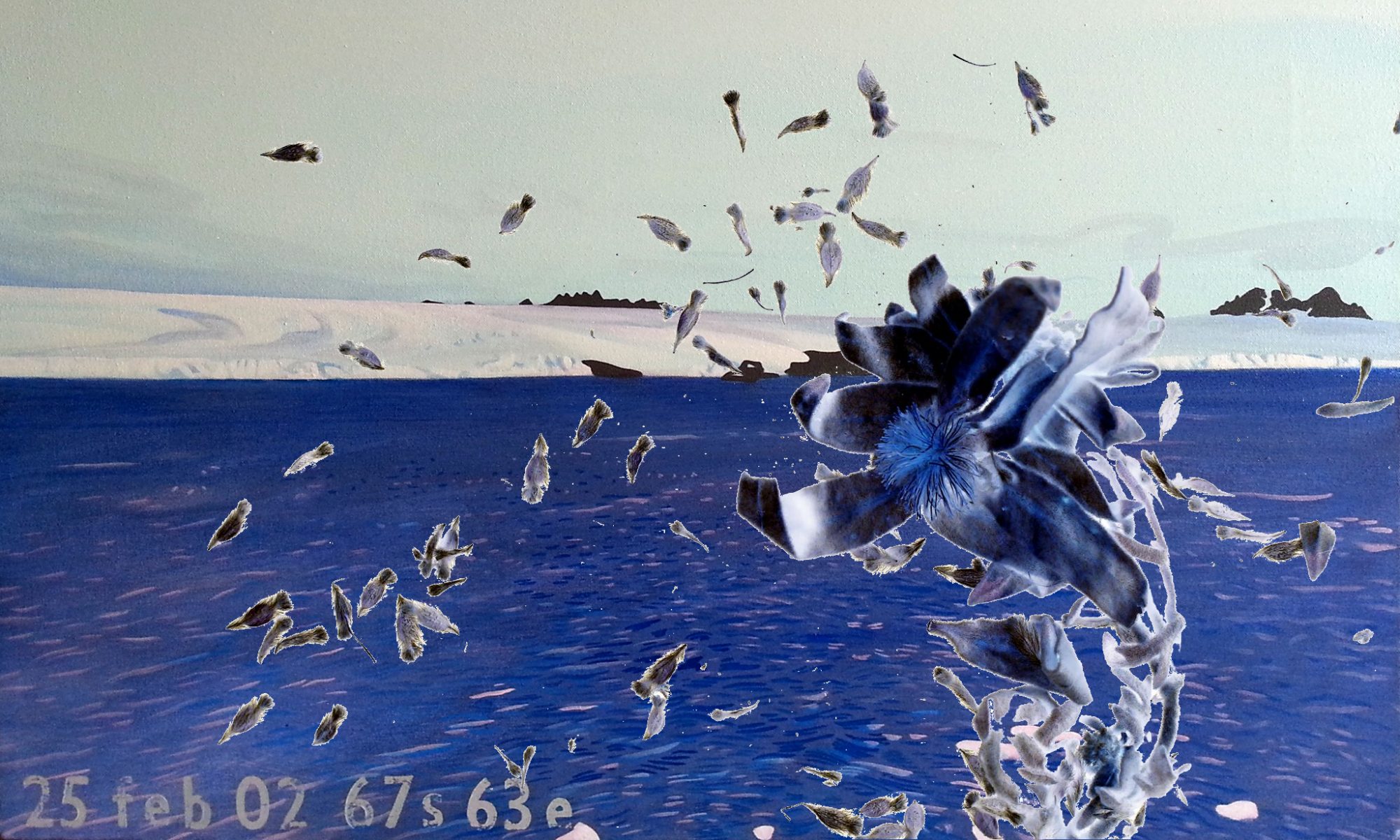One of the books taken by some to read in Antarctica was The Golden Bough: a study in magic and religion. I saw a copy in the Davis station Library in 2002. Jack Ward refers to it, with some reservations, in his 1954-5 Mawson Diary.
Reading from a copy in my cousin’s house, I can see how the thinking of early expeditioners may have been shaped by its notions of sublime, and savage.
Turner’s painting, The Golden Bough, features on the cover:

Frazer describes Turner’s scene as “suffused with the golden glow of imagination”, a “dream-like vision”, “Diana’s Mirror”, of “stillness and even solitariness”. But there is a dark force here:
In antiquity this sylvan landscape was the scene of a strange and recurring tragedy…
In this sacred grove there grew a certain tree round which at any time of the day , and probably far into the night, a grim figure might seem to prowl. In his hand he carried a drawn sword, and he kept peering warily about him as if at every instant he expected to be set upon by an enemy. He was a priest and a murderer; and the man for whom he looked was sooner or later to murder him and hold the priesthood in his stead. Such was the rule of the sanctuary.
And such is the rule of natural selection, where the strong overcome the weak.
Antarctica is a savage landscape. You can imagine primitive forces at work there.
I note this reference to the shadow. Like the mirror, this is a metaphor for self reflection.
#3 The Soul as a Shadow and a Reflection. – But the spiritual dangers I have enumerated are not the only ones that beset the savage. Often he regards his shadow or reflection as his soul, or at all events a vital part of himself, and as such necessarily a source of danger to him. For if it is trampled upon, struck, or stabbed, he will feel the injury as if it were done to his person; and if it is detached from him entirely (as he believes that it may be) he will die.
The golden Bough: a study in magic and religion, Pub. Wordsworth Reference, 1993
Written on the back cover of this edition I read:
Remarkable for its vast assembly of facts and its charm of presentation, it offers the thesis than man progresses from magic through religious belief to scientific thought. It discusses fertility rites, human sacrifice, the dying god, the scapegoat and other symbols and practices which have influenced a whole generation of 20th century writers, including D.H. Lawrence, Ezra Pound and T.S.Eliot.
James Frazer (1854-1941) was a Scottish anthropologist. His study was first published in 1890. By 1954, when the time Jack Ward travelled south, its literary style and some of its propositions had become dated.
Did The Golden Bough influence Ward’s writing, or the drawings of his fellow expeditioner, Fred Elliott?
Elliott’s drawing, Masson Range, is the opposite of a bough. Instead of boughs arching over, its landscape features are rocks, pushing upwards through the centre. You are exposed, not sheltered. And instead of warm golden tones, all is stark black and white. Part of a suite, Antarctica in Black and White, this scene speaks of extremes.
On the other hand, there is a sense of “primative forces” at work in Elliott’s work. His “Contracture” drawing annotates his Masson Range, describing the twisting rocks. These forces are known as geological, but when the rocks have been climbed, and art is made of them, they become powerful metaphors for life forces. The depiction of the force assumes more meaning, reflecting the profound connection of this person to the landscape. The energy in this work may or may not have been influenced by The golden Bough. The connection with landscape, australian landscape, was already there.
Ward’s writing is starker, and more minimal, than Frazer’s. His sentences are brief. And, like Elliott, he composes from the perspective of someone experiencing the landscape. He is not reporting about it from a distance.
Over the fifteen months they were working there, were they part of the place they described?
